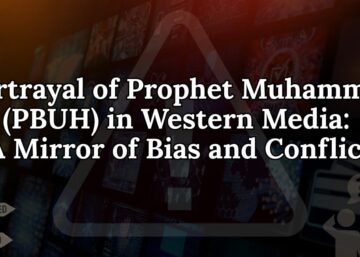Prophet Muhammad (صلی اللہ علیہ وسلم), the final messenger of Islam, exemplified a message of tolerance, inclusivity, and respect for diversity throughout his life. His teachings and actions underscored the importance of honoring and recognizing the legitimacy of other religions, beliefs, prophets, and customs, fostering a spirit of harmony and mutual understanding among people of different faiths and cultures. In this comprehensive article, we delve into the teachings and concepts of Prophet Muhammad (صلی اللہ علیہ وسلم) regarding respect for other religions, beliefs, prophets, and customs, highlighting their relevance in promoting interfaith dialogue and cooperation in today’s pluralistic world.
Respect for Other Religions:
Prophet Muhammad (صلی اللہ علیہ وسلم) emphasized the importance of respecting the beliefs and practices of people from different religious traditions. He recognized the diversity of faiths as part of Allah’s divine plan and urged Muslims to interact with followers of other religions with kindness, compassion, and tolerance. In his interactions with Jews, Christians, and people of other faiths, the Prophet demonstrated a spirit of openness and acceptance, setting a precedence for peaceful coexistence and dialogue.
Beliefs and Prophets:
Prophet Muhammad (صلی اللہ علیہ وسلم) affirmed the belief in all the prophets who came before him, including Adam, Noah, Abraham, Moses, and Jesus. He regarded them as honorable messengers of Allah and emphasized their role in guiding humanity towards righteousness and holiness. The Quran acknowledges the legitimacy of previous scriptures, such as the Torah and the Gospel, and encourages believers to respect the sacred texts and traditions of other faith communities.
Customs and Practices:
Prophet Muhammad (صلی اللہ علیہ وسلم) respected the cultural customs and practices of different communities, provided they did not contradict Islamic principles or moral values. He encouraged Muslims to adopt the good aspects of local customs and traditions while avoiding anything contrary to the teachings of Islam. The Prophet’s approach reflected a nuanced understanding of cultural diversity and the importance of maintaining cultural heritage within the framework of Islamic principles.
Promotion of Peace and Harmony:
Throughout his life, Prophet Muhammad (صلی اللہ علیہ وسلم) sought to promote peace, harmony, and reconciliation among people of diverse backgrounds. He emphasized the value of forgiveness, compassion, and empathy in resolving conflicts and building bridges of understanding between communities. The Prophet’s treaty with the people of Medina, known as the Constitution of Medina, serves as a model for fostering social cohesion and cooperation among different religious and tribal groups.
Conclusion:
Prophet Muhammad’s teachings on respecting other religions, beliefs, prophets, and customs are rooted in the principles of compassion, tolerance, and mutual respect. His example inspires Muslims to engage with people of diverse backgrounds with humility, empathy, and understanding, fostering a culture of dialogue, cooperation, and peace. In today’s interconnected world, Prophet Muhammad’s message of pluralism and inclusivity remains as relevant as ever, offering a blueprint for building harmonious and cohesive societies based on the principles of justice, equality, and respect for human dignity.



